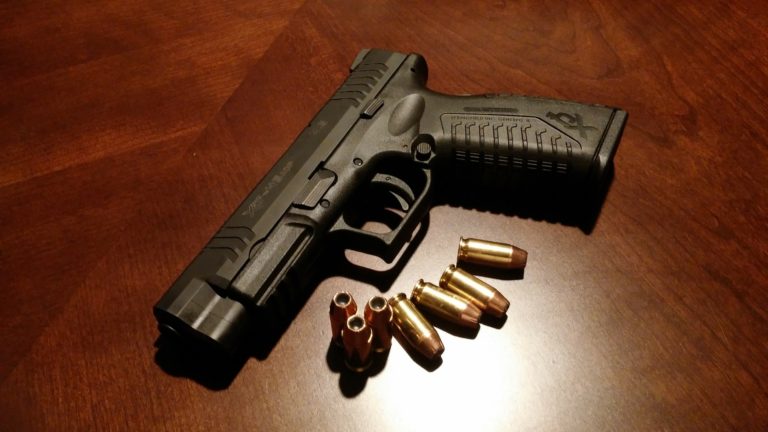The Eight Factors Used To Red Flag Your Gun Rights

From local officials, to members of congress, to the President of the United States, plans are in motion to make Emergency Risk Protection Orders (ERPO’s), commonly called Red Flag Laws, the national norm.
An ERPO order allows for the confiscation by force of all firearms owned by an individual. An individual served with an ERPO would lose their firearms for a period between three months and one year.
In Pennsylvania, Red Flag Laws are under serious consideration and supported by even the states Republican Senator, Pat Toomey. In a recent article for the Pennsylvania Post, reporter Ed Mahon listed the eight factors a “judge or hearing officer would be required to weigh” when issuing an ERPO. Each has problems, but taken together they amount to one fact: without committing any crime, ERPO’s allow a judge or hearing officer to strip American citizens of a fundamental and constitutional right.

The Eight Factors
Suicide threats or attempts: Though guns are the most effective tool for committing suicide, less than 50% of suicides are attempted with a firearm. While taking guns away from an individual may decrease the effectiveness of a suicide attempt, it is unlikely to prevent the suicide.
Threats or acts of violence or attempted acts of violence: Threats and acts of violence are crimes. Therefore, violent actors can be prosecuted without violating due process rights.
Domestic abuse, including violating a protective order: Domestic abuse and violation of protective orders are crimes. These crimes are prosecuted without violating the right to due process and self defense.
Cruelty to animals: This is already a crime and can result in the prosecution of an individual. This crime can and should be prosecuted without violating an individuals right to due process and self defense.
Drug abuse or any criminal offense that involves drugs or alcohol: This is an unrelated standard that will disproportionately hurt minority populations, including LGBTQ and African American individuals who have long been targeted for drug and criminal offenses.
Unlawful or reckless use or display of a gun: The unlawful use of a gun is already a crime and can be prosecuted without violating due process standards. “Reckless” is a low legal standard. Judges or hearing officers can unfairly draw a line that allows targeting of individuals based on hearsay, rather than fact. Minority populations are more likely to be the target of these policies.
Recent acquisition or attempted acquisition of a gun: Owning a firearm is a constitutionally protected right. Self defense is a fundamental human right. It is unreasonable that the recency of a purchase should play a role in determining whether to strip someone of their human right to self defense. It is also more likely to disarm someone who has urgent need to defend themselves.
Any additional information the court finds to be reliable: This is an unreasonable standard and allows for hearsay, unfair treatment, and personal bias to color the decision of a judge or hearing officer. This is also likely to increase persecution of minorities and already vulnerable populations.
Are Red Flag Laws Just?
Does the Second Amendment actually provide a standard that “shall not be infringed?” In the modern era, the answer is no.
For decades courts have interpreted the Second Amendment to have many and varied limitations. Gun free zones, the National Firearms Act of 1934, and the bump stock ban are just a few. Regardless of your opinion, the law allows for infringements on your right to self defense. Even the Supreme Court holds that your rights have limits.
There are many instances in which an individual waives their constitutional rights. For instance, accepting some jobs may require you to sign away your right to free speech about your work. Similarly, you cannot yell “fire” in a crowded theater. In other cases, private property owners may require you to waive your Second Amendment Rights . Inherent in having a right is the ability to waive it. You have a right to free speech, but you do not have to speak. You have the right to keep and bear arms, but you do not have to carry a gun. In fact, only 31% of American households have firearms.
Choices
Legality does not equal morality. The question runs deeper. In the instances above there is an element of choice. In the case of Red Flag Laws, however, you lose the ability to fight back. There is no choice. You lose the right to defend yourself in a court of law. Evidence used by a judge is based on assumptions rather than facts. Even with a guaranteed hearing in ten days your rights are stripped for a period of time. This is already occurring across the country where these laws have been passed.
Can your rights be legally stripped on hearsay and presumption of guilt for a potential crime? Is a Red Flag policy likely to defuse potential violence, or lead to more?
As we inch closer toward a national Red Flag standard, and the many lawsuits that will immediately follow, we just might find out.
This article also appeared on The Liberty Block


